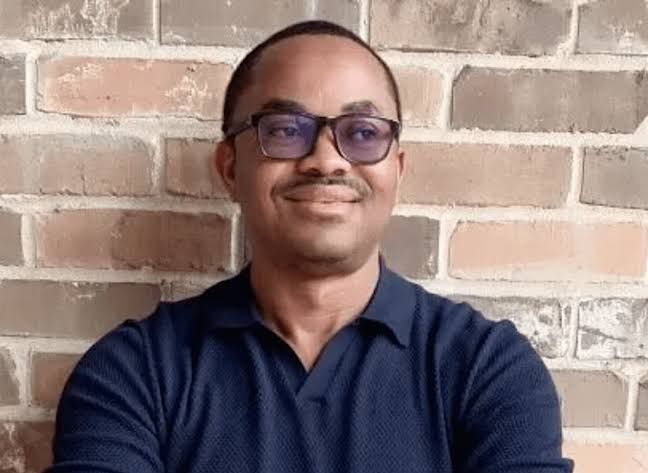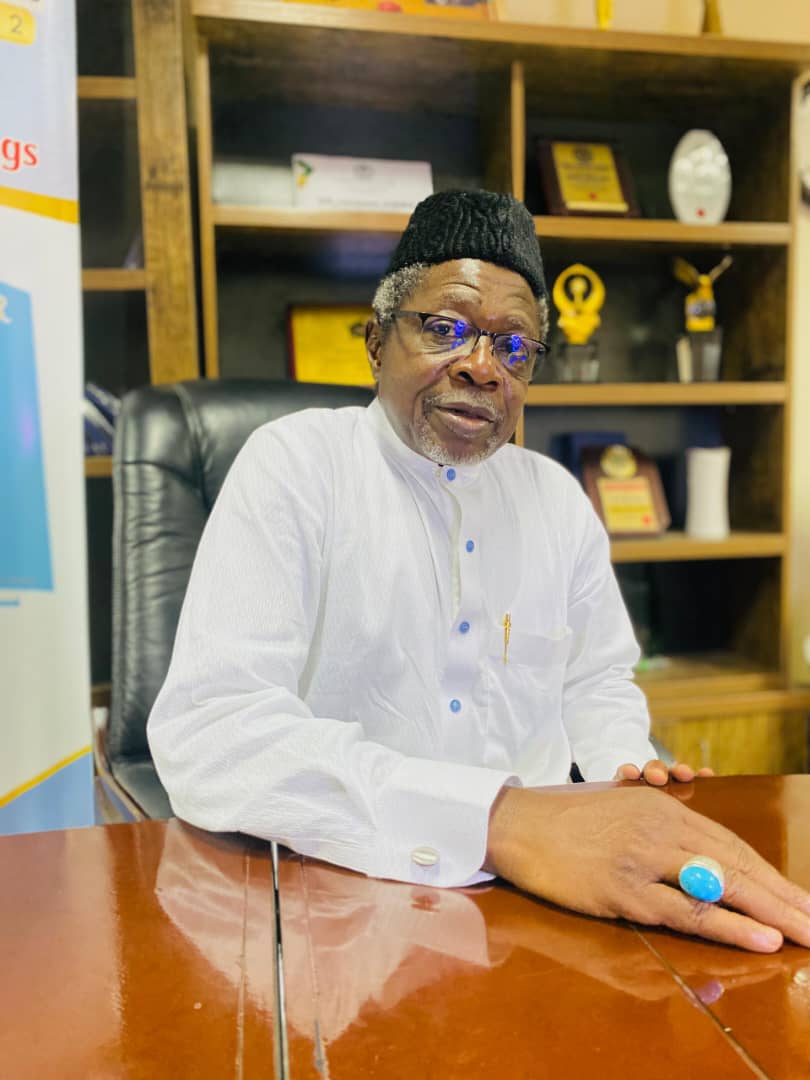Rejoinder to Funke Egbemode’s “Women are Free to Be Gold Diggers”: A male perspective, by Osmund Agbo
It was sometime last year that I first encountered Funke Egbemode’s writing. Though I cannot recall the precise title, the thematic current was unmistakably familiar: sharp, provocative commentary drawn from the contemporary feminist playbook.
Of course, I didn’t agree with all her assertions, but I was immediately captivated by her rare intellectual clarity and a literary style that fuses Queen’s English with the streetwise cadence of Nigerian vernacular. Her prose flows with clarity and elegance, never burdened by unnecessary verbosity.
Not that I have anything against ornate writing, but her lean, lucid style happens to mirror my own preferences.
Since that moment, I’ve become something of a literary groupie, routinely scouring the digital landscape for her byline, in those moments when leisure permits. It was during one of those forages that I stumbled upon the article that prompted this rejoinder.
There is no doubt that Funke’s essay, Women are Free to Be Gold Diggers, holds a mirror to the faces of many men and it’s not a flattering reflection.
With piercing honesty and no small dose of wit, she exposed the male tendency to choose life partners based on the most superficial of criteria: breast size, butt shape, skin tone, and culinary skills.
READ ALSO: The gift of imperfection, by Osmund Agbo
She rightly critiques the deeply ingrained male habit of evaluating women as though they were commodities, prized for packaging rather than essence. I agree entirely with her indictment of this culture, because it is real, it is shallow, and quite frankly, damaging.
As a man, I recognize the truth in her examples: men who fantasize about voluptuous women while marrying women they call their “pillar,” relegating real value to domestic and spiritual utility, and reserving physical desire for their side chics. Yes, there are men who will not marry a woman who can’t cook.
And yes, a great number of African men, not just Nigerian men obsess over fair skin, the infamous “yellow pawpaw” syndrome, and the all-too-familiar worship of curves.
We cannot continue pretending that these preferences are harmless quirks. They are part of a broader culture that trivializes women, pressures them into conformity, and enshrines contradiction as normalcy.
It’s a distortion of human connection, this idea that a woman’s worth must be judged through the narrow lens of aesthetic appeal or archaic domestic stereotypes.
That said, while I agree with the core of Funke’s critique, I believe her conclusion, especially in asserting that women undergo extreme makeovers solely to please men, misses a deeper, more nuanced point.
READ ALSO: The myth of the self-made man, by Osmund Agbo
Yes, there are women who bleach their skin, undergo Brazilian Butt Lifts (BBL), or even “change their ambition” in relation to their partners. But to say they do so primarily or exclusively to please men ignores a powerful force that drives much of female behavior today: the gaze and judgment of other women.
In today’s world, many women are not only performing for men, they are performing for each other. Ask any woman who has had a cosmetic procedure or spent hours contouring her face with makeup, and she may admit that the compliments she values most don’t always come from the men she’s trying to attract, but from her female peers. The goal? To be the standard. The benchmark. The girl that every other girl wants to be like.
In Nigerian parlance, we hear phrases like “Babe, you go pepper them!” or “You’re giving them hot hot!”—a declaration not of male attention, but of female envy.
The “them” in these phrases rarely refers to men. It refers to fellow women who must now compete or concede. Social validation among women is a force no less potent than romantic attention from men.
Some of the beauty trends that dominate our times, dramatic fake eyelashes, neon-colored lace frontals, or heavily drawn eyebrows that look like war paint, are not exactly male-inspired fantasies.
If anything, many men recoil at these excesses. I’ve sat through enough barbershop debates and informal male hangouts to know that the average man doesn’t dream of being jabbed in the eye by a dagger-shaped eyebrow or suffocated in a cloud of setting spray. But women do them anyway, and often not for male approval, but for self-esteem and peer affirmation.
READ ALSO: The truth about truth, by Osmund Agbo
So while I agree that men have contributed their fair share to the commodification of female bodies, I think it’s overly simplistic to suggest that women are helpless victims of male fantasy.
Many women are powerful agents of their own choices, sometimes tragically so. The desire to look like “that girl” on Instagram and “pepper” them or to stand out in a friend group as the flyest babe often drives decisions just as forcefully as any man’s gaze.
Now to the heart of Funke’s article: the defense of gold-digging. Is it fair for a woman to want financial security in a relationship? Absolutely. Is it wrong for her to have standards and expectations of comfort and provision? Not in the least.
Marriage is a contract, and each party has a right to define what they seek. If a man is free to want a woman who is nurturing, prayerful, or physically attractive, a woman is equally within her rights to want a man who is financially stable.
However, the glorification of gold-digging, of reducing a woman’s marriage aspirations to the size of a man’s wallet, is no less superficial than men obsessing over cup sizes and butt dimensions.
The principle is the same: judging someone’s worth on a narrow and materialistic basis. When a woman says she won’t even talk to a man who doesn’t drive a car or live in a highbrow neighborhood, she’s not asserting self-respect, she’s perpetuating a hierarchy that privileges wealth over character, empathy, and emotional intelligence.
READ ALSO: The gilded cage of stardom, by Osmund Agbo
Let’s be honest: both men and women are guilty of using skewed yardsticks in matters of love. Men judge women by bodies; women judge men by bank balances. Men want beauty; women want Bentley keys. The tragedy is that both approaches miss the point.
Relationships should not be reduced to transactions or fantasy fulfillment. They should be grounded in shared values, mutual respect, compatibility, and emotional connection. A man who marries for beauty alone is as unwise as a woman who marries for money alone. In both cases, the foundation is shaky, and time will eventually test the structure.
We live in an age where many marriages collapse not because of poverty or physical unattractiveness but because of misaligned expectations, poor communication, emotional neglect, and the absence of friendship.
These things cannot be bought at a cosmetic clinic or a car dealership. They require intentionality and maturity, from both genders.
So yes, Funke was right: society has often been unfair to women, demanding that they be all things, beautiful, resourceful, submissive, supportive, while letting men get by with little introspection. But the solution is not to swing to the other extreme and glorify materialism in women. Rather, we must challenge both men and women to reimagine what matters.
Let us teach our sons to value substance over silhouette and our daughters to aspire beyond seduction. Let us normalize standards that speak to dignity, intellect, kindness, and shared ambition.
READ ALSO: The unspoken privilege of limited options, by Osmund Agbo
Let us leave behind both the bleacher’s lotion and the bank statement as primary determinants of love and instead walk toward the kind of relationships where both partners are seen, respected, and chosen, for who they are, not what they have.
Because in the end, we all deserve more than to be someone’s fantasy or financier. We deserve to be someone’s partner.
Osmund Agbo is a medical doctor and author. His works include, Black Grit, White Knuckles: The Philosophy of Black Renaissance and a fiction work titled The Velvet Court: Courtesan Chronicles. His latest works, Pray, Let the Shaman Die and Ma’am, I Do Not Come to You for Love, have just been released. He can be reached@ eagleosmund@yahoo.com
Follow the Neptune Prime channel on WhatsApp:
Do you have breaking news, interview request, opinion, suggestion, or want your event covered? Email us at neptuneprime2233@gmail.com





